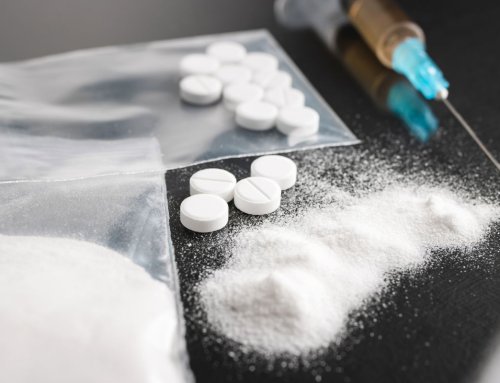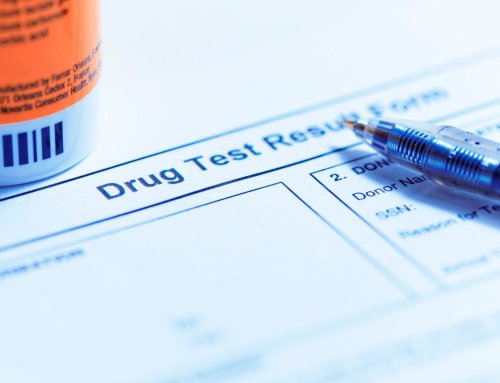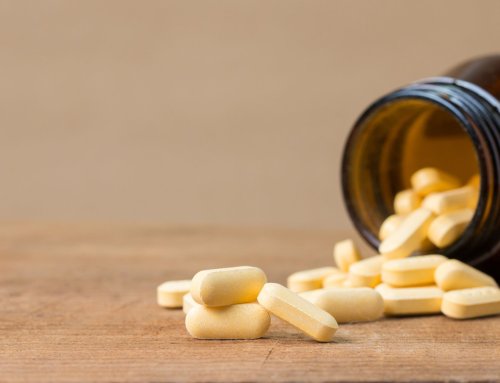If you’ve been searching for “detox near me,” you’re already taking an important first step toward recovery.
This guide will walk you through what detox is, what to expect during the process, and how local detox options play a role in long-term recovery, so you can take that confident step toward a healthier future.

What Is Detox?
Detox (short for detoxification) is the first step in recovery from substance abuse. It’s the process of letting drugs or alcohol leave your body safely. When someone has been using substances for a long time, their body gets used to them. If they suddenly stop, they may feel sick or uncomfortable. These are called withdrawal symptoms.
Detox helps the body adjust without the drug or alcohol. This step is important because it clears the body so a person can begin healing both physically and mentally. Detox can be done at a medical center or detox facility, where doctors and nurses watch over you and help manage any pain or risks.
It doesn’t treat addiction by itself, but it prepares you for the next steps (e.g., therapy, rehab) to help you stay sober and build a better life.
What to Expect During the Detox Process
When someone goes through detox, their body causes physical and emotional changes. Here’s what to expect during each stage of the process:
1. Early Signs and Timing
Depending on the substance used:
- Alcohol withdrawal peaks around 72 hours with symptoms like tremors, nausea, anxiety, or insomnia. In severe cases, delirium tremens (dangerous confusion, seizures) may occur.1
- Opioid withdrawal often begins in a similar timeframe, peaks around 24–48 hours, and usually lasts about 10 days.2
- Stimulant withdrawal (e.g., meth, cocaine) can start within 24 hours and last 3–5 days, followed by a longer phase of mood swings, low energy, and strong cravings that may continue for 1–2 months.2
2. Monitoring & Assessment
Medical staff use standardized scales to check how bad symptoms are:
- For alcohol, the CIWA‑Ar scale assesses things like nausea, tremors, sweating, and agitation. Scores help guide medicine doses.
- For opioids, tools such as the Clinical Opiate Withdrawal Scale or Short Opiate Withdrawal Scale help doctors decide whether medication like clonidine, buprenorphine, or methadone is needed.
3. Medical & Supportive Care
- In alcohol detox, benzodiazepines (e.g., diazepam, lorazepam) are commonly used to ease symptoms and prevent seizures.3 Treatment may be scheduled or triggered by symptoms as determined by CIWA‑Ar scores.
- For stimulant or opioid withdrawal, medications like clonidine, lofexidine, buprenorphine, or methadone may be used depending on severity.4
- Patients are encouraged to drink 2–3 liters of water per day and may receive vitamin supplements, like thiamine and B vitamins, to prevent complications (especially with alcohol withdrawal).2
- Staff regularly monitor vital signs, mental state, and physical reactions (e.g., tremors, blood pressure changes). In severe cases, sedation and hospital transfer may be needed.
4. Emotional & Psychological Support
- Teams offer education about what to expect physically and mentally to help reduce fear and prevent early dropouts from detox programs.
- Supportive care includes maintaining a calm, drug‑free environment, respectful staff interactions, and patient advocacy, all of which improve comfort and trust.
5. Transitioning Forward
- Detox is not treatment by itself. Effective programs include planning for the next steps, such as therapy, counseling, or medication-assisted treatment.
- Studies show that good discharge planning, patient education, and smooth handoffs to treatment services lead to better outcomes and less relapse.5
These steps reflect what many studies and expert bodies recommend for safe, effective detox from substances like alcohol, opioids, or stimulants.
Choosing the Right Detox Program
Not every program works the same for everyone, so here’s how to choose one that fits your needs.
1. Talk to a professional first
Start by speaking with a doctor, counselor, or addiction specialist.
They can check your health and substance use history to help you know what kind of detox care you need: at home, in a clinic, or in a hospital.
2. Decide between inpatient or outpatient detox
- Inpatient detox means you stay at a treatment center. It’s best if your symptoms are strong or if you need medical support 24/7.
- Outpatient detox means you go to a clinic during the day and sleep at home. This works better if your symptoms are mild and you have good support at home.
3. Check if the program offers medical help
Make sure trained doctors or nurses are available. This is very important for alcohol, opioids, or other drugs that can cause dangerous withdrawal symptoms.
You’ll want a place that can give you medicine to manage pain, nausea, or anxiety.
4. Ask about personalized treatment
A good detox program should make a plan that fits your personal needs, not a one-size-fits-all approach. They should ask about your:
- Health history
- Mental health (like anxiety or depression)
- Type of drug or alcohol used
- How long and how much you’ve used
5. Check for comfort and safety
Detox is hard, so the place you choose should feel safe, calm, and respectful. Ask if they provide:
- A quiet, clean space
- Kind staff who treat you with dignity
- Help with things like meals, sleep, and emotional support
6. Look into what happens after detox
Detox is just the first step. A strong program will help you plan what’s next, like therapy, counseling, or rehab. Ask:
- Do they help with follow-up care?
- Will they guide you into longer-term treatment?
7. Inquire about insurance or cost
Make sure the program fits your budget or is covered by insurance. Some places also offer help with payment plans or sliding-scale fees.
Take your time, ask questions, and don’t be afraid to ask for help.
How Local Detox Options Are Key to Long-Term Recovery
When choosing a detox program, starting with one close to home is often one of the best ways to support your recovery.
Local detox programs give you a chance to begin recovery in a place that’s easier to reach, more familiar, and often more comfortable.
1. Easier to get help quickly
If a detox center is nearby, it’s easier to get started right away. You don’t have to worry about travel or being far from your support system. The sooner you begin detox, the sooner your body and mind can start to heal.
2. Close to family and support
Being near people who care about you (family or close friends) can give you extra strength during detox. Even just knowing they’re nearby can help you feel safe and less alone.
3. More likely to stay in the program
People who choose local treatment are more likely to finish detox and keep going with the next steps. It’s easier to show up when help is close.
4. Smoother transition to ongoing care
Recovery doesn’t stop after detox. A local program can help connect you with nearby therapists, recovery groups, or outpatient care so your journey continues without a gap.
Taste Recovery makes it easy to find local, licensed treatment centers that fit your needs. Their platform connects you with trusted programs, all in one place, so you don’t have to search endlessly.
Explore options near you and take the first step toward lasting recovery.

Sources:
- Newman, R. K., Stobart, M. A., & Gomez, A. E. (2024). Alcohol Withdrawal Syndrome. Nih.gov; StatPearls Publishing. https://www.ncbi.nlm.nih.gov/books/NBK441882/
- World Health Organization. (2009). Withdrawal Management. Nih.gov; World Health Organization. https://www.ncbi.nlm.nih.gov/books/NBK310652/
- Sachdeva, A., Choudhary, M., & Chandra, M. (2020). Alcohol Withdrawal Syndrome: Benzodiazepines and Beyond. JOURNAL of CLINICAL and DIAGNOSTIC RESEARCH, 9(9). https://doi.org/10.7860/jcdr/2015/13407.6538
- Shah, M., & Huecker, M. R. (2023). Opioid Withdrawal. Nih.gov; StatPearls Publishing. https://www.ncbi.nlm.nih.gov/books/NBK526012/
- Timko, C., Schultz, N. R., Britt, J., & Cucciare, M. A. (2016). Transitioning From Detoxification to Substance Use Disorder Treatment: Facilitators and Barriers. Journal of Substance Abuse Treatment, 70, 64–72. https://doi.org/10.1016/j.jsat.2016.07.010









